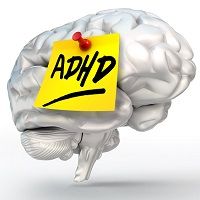Heredity an Important Factor in ADHD, Alcoholism, and Binge Eating
“We have shown for the first time that the correlation between ADHD symptoms and binge eating in women depends mainly on a common hereditary susceptibility for the two disorders,†Johansson Capusan explained. “Much of the correlation between alcohol dependence and ADHD can also be explained by genetic factors."

Heredity plays a major part in the development of attention deficit hyperactivity disorder (ADHD), according to the conclusion of a doctoral thesis from Linkoping University in Sweden.
Andrea Johansson Capusan, whose focus is on binge-eating and alcohol dependence in adults with ADHD symptoms, successfully defended her thesis in September. Johansson Capusan explained that by using the Swedish Twin Registry, she was able to compare identical twins to fraternal twins to identify the genetic versus environmental factors that determine ADHD development.
Across four separate studies from the registry, nearly 18,000 twin pairs aged 20 to 46 years old were included. The twin pairs completed questionnaires about their experiences with ADHD symptoms, their consumption of alcohol and other substances, as well as their binge eating behaviors.
The first study determined the phenotypic links between ADHD and various forms of substance abuse disorders, while studies two and four examined the environmental and genetic factors in association with alcohol dependence and binge eating in patients with ADHD. The third study taught the research team that even though adult ADHD symptoms were typically linked to self reported mistreatment during childhood, genetic factors could corroborate the findings.
“We have shown for the first time that the correlation between ADHD symptoms and binge eating in women depends mainly on a common hereditary susceptibility for the two disorders,” Johansson Capusan explained in a press release. “Much of the correlation between alcohol dependence and ADHD can also be explained by genetic factors. The remainder of the correlation is explained by environmental factors that are particular for the individual, which is interesting. It seems that having a common environment while growing up is not significant.”
Johansson Capusan also believes that the symptoms of ADHD in combination with binge eating and dependency disorders must be treated simultaneously.
“When treating adults who come with dependency disorder or substance abuse behavior, it's important to remember that ADHD is very common in these patients,” she concluded in the statement. “And conversely, it’s important to treat ADHD early in order to prevent alcohol dependence and binge eating later in life.”
Related Coverage:
Online Software Can Boost ADHD Symptom Analyses in Children